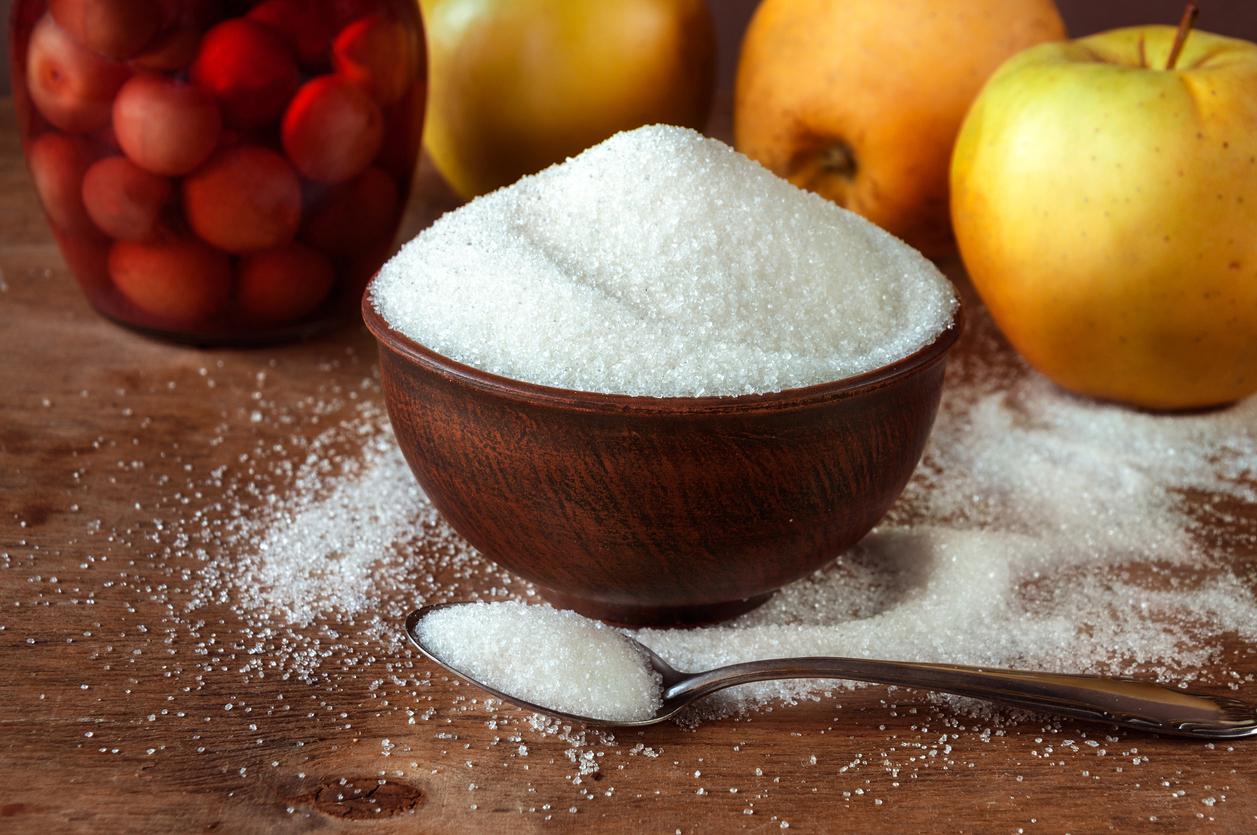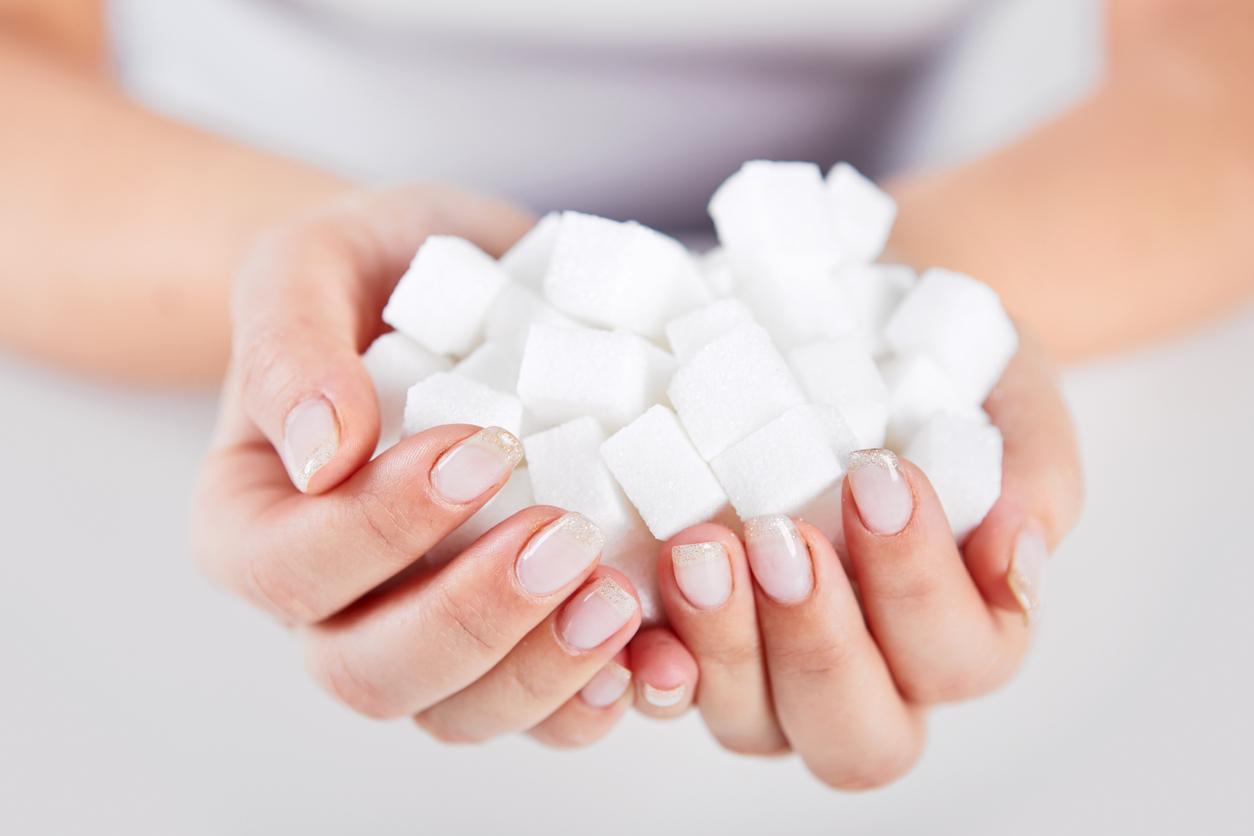Consumption of free sugars, such as those found in juices or sugary products, is associated with a higher risk of cardiovascular disease.

- According to the WHO, free sugars should represent less than 10% of the total energy intake.
- Excessive sugar consumption is associated with other pathologies, such as certain cancers.
25 grams, or six teaspoons: this is the daily amount of sugar not to be exceeded according to theWorld Health Organization (WHO). This limits the risk of overweight, obesity and dental caries according to the organization. But it would also reduce the risk of cardiovascular disease, as indicated by a study published recently in BMC Medicine. Its authors explain that a high consumption of free sugars is associated with a greater risk of heart disease or stroke.
Free sugars: what is it?
“‘Free sugars’ are monosaccharides (glucose, fructose) and disaccharides (sucrose or table sugar) added to foods and beverages by the manufacturer, cook or consumer, as well as sugars naturally present in honey, syrups, fruit juices and fruit juices from concentrate”, says the WHO. She specifies that they are present in both sweet and savory products: thus a can of soda can contain up to 40 grams of sugar, and a tablespoon of ketchup 4 grams. They are to be differentiated from the sugars consumed via whole fruits or vegetables.
A correlation between free sugars and cardiovascular disease
In this new study, the researchers analyzed data from nearly 110,500 people, via a British database. Participants were followed for approximately 9 years. The authors found that total carbohydrate intake was not associated with cardiovascular disease. On the other hand, looking at the types and sources of carbohydrates consumed, they noticed that a higher intake of free sugars from foods such as sugary drinks, fruit juices or sweets was associated with an increased risk of diseases. cardiovascular. For every 5% increase in calories from free sugars, the associated risk of cardiovascular disease was 7% higher. The authors conclude that the risk of heart disease is 6% higher, while the risk of stroke is 10% higher.
Cardiovascular risk: how to avoid free sugars?
“Consuming five grams more fiber per day was associated with a 4% lower risk of total cardiovascular disease., raise the authors. But this association was no longer significant after controlling for body mass index (BMI). However, researchers believe that a higher fiber intake in the diet offers protection against cardiovascular disease. Above all, they recommend replacing free sugars with non-free sugars, those naturally present in whole fruits and vegetables. In short, rather than a fruit juice, it is better to consume the whole fruit.


















